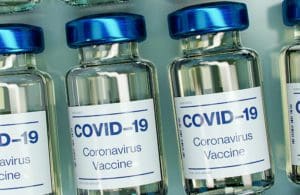
[Photo by Daniel Schludi on Unsplash]
However, that could change in the long run as a growing number of companies develop next-generation mRNA COVID-19 vaccines, which promise to be more effective and less likely to cause side effects than their predecessors.
While mRNA COVID-19 vaccines are among the most effective vaccines against the novel coronavirus, researchers have linked their use to rare side effects such as myocarditis.
Future mRNA may be better tolerated. mRNA itself promotes an immune response future mRNA vaccines could optimize reactogenicity through refining the dose or structure of the single-stranded RNA molecule.
Such next-gen vaccines will also likely be more effective against SARS-CoV-2 variants. While the mRNA vaccines from Pfizer/BioNTech and Moderna were approximately 95% efficacious against early lineages of SARS-CoV-2, they appear to be less effective against the Delta variant and other variants of concern.
Contenders looking to compete in the next-gen COVID-19 mRNA-based vaccine market include a mix of Western and Asian players.
CureVac (NSDQ:CVAC): CVnCoV, CureVac’s first vaccine offering, disappointed with 48% efficacy in a pivotal trial. But the company is partnering with GSK to develop monovalent and multivalent vaccine candidates based on an mRNA platform that could offer substantially better protection. Early data show that the CV2CoV vaccine led to a ten-fold increase in neutralizing antibody levels compared with CVnCoV.
Moderna: The mRNA-focused company is developing mRNA-1273.351, a vaccine optimized for the Beta variant that first emerged in South Africa. It is also testing a vaccine known as mRNA-1273.211, a 50/50 mix of its first-gen vaccine and mRNA-1273.351 vaccine.
Pfizer: While Pfizer and its partner BioNTech have confirmed they are testing the use of their BNT162b2 vaccine as a booster, the companies have not yet shared details on their plans for future mRNA-based COVID-19 vaccines. In February, however, Pfizer confirmed it was working with BioNTech to “evaluate a variant-specific vaccine having a modified mRNA sequence.” At that time, the company said it was developing a vaccine based on the B.1.351 (Beta) lineage. More recently, it has acknowledged that it is also working on a vaccine targeting the Delta variant of SARS-CoV-2.
Sanofi (EPA:SAN): One of the top vaccine producers overall, Sanofi is a relatively late-comer to mRNA-based vaccines. But the company recently announced that it was investing $477 million annually in developing mRNA vaccines. Sanofi, however, hasn’t confirmed which diseases it will target with mRNA vaccines. It’s hinted that it would develop an mRNA flu vaccine candidate. Sanofi has also committed to assisting Moderna with the production of its vaccine. Separately, it is working with GSK on a non-mRNA–based COVID-19 vaccine.
Suzhou Ribo: The China-based company has patents for its mRNA-based COVID-19 based vaccine that can potentially be stored at refrigerator temperatures.
StemiRNA: StemiRNA has licensed an mRNA platform from a U.S. firm. The company is exploring the use of a lipopolyplex (LPP) nano-delivery platform. In contrast to the lipid nanoparticle platforms from first-generation mRNA-based COVID-19 vaccines, the LPP platform offers slower expression. While lipid nanoparticle formulations express mRNA in approximately 12 hours, LPP vaccine expression can occur in a window of seven to 14 days. Lipopolyplexes, however, may have greater toxicity than lipid nanoparticles.
WalVax (SHE:300142): The company is also working on an mRNA COVID-19 vaccine candidate in collaboration with Abogen and the PLA Academy of Military Science. A Phase 3 clinical trial for the vaccine are underway. Some 6,000 volunteers in Mexico are taking part in the study.
CanSino Biologics (HKG:6185): The company is partnering with Precision NanoSystems to develop its mRNA vaccine. Precision Nano Systems is a microfluidic device specialist with experience producing lipid nanoparticles. In their collaboration, Precision NanoSystems is focusing on vaccine design, while CanSino plans to focus on everything from preclinical and clinical development to commercialization.
AIM Vaccine Co: AIM Vaccine Co. acquired Liverna in May. Liverna had been collaborating with Amicus Therapeutics to develop an mRNA vaccine.
Filed Under: clinical trials, Drug Discovery, Infectious Disease





Tell Us What You Think!
You must be logged in to post a comment.